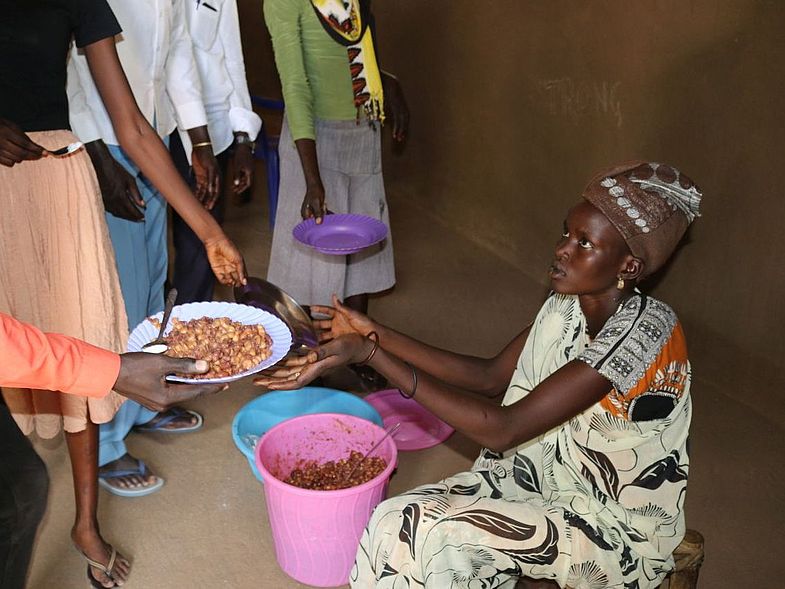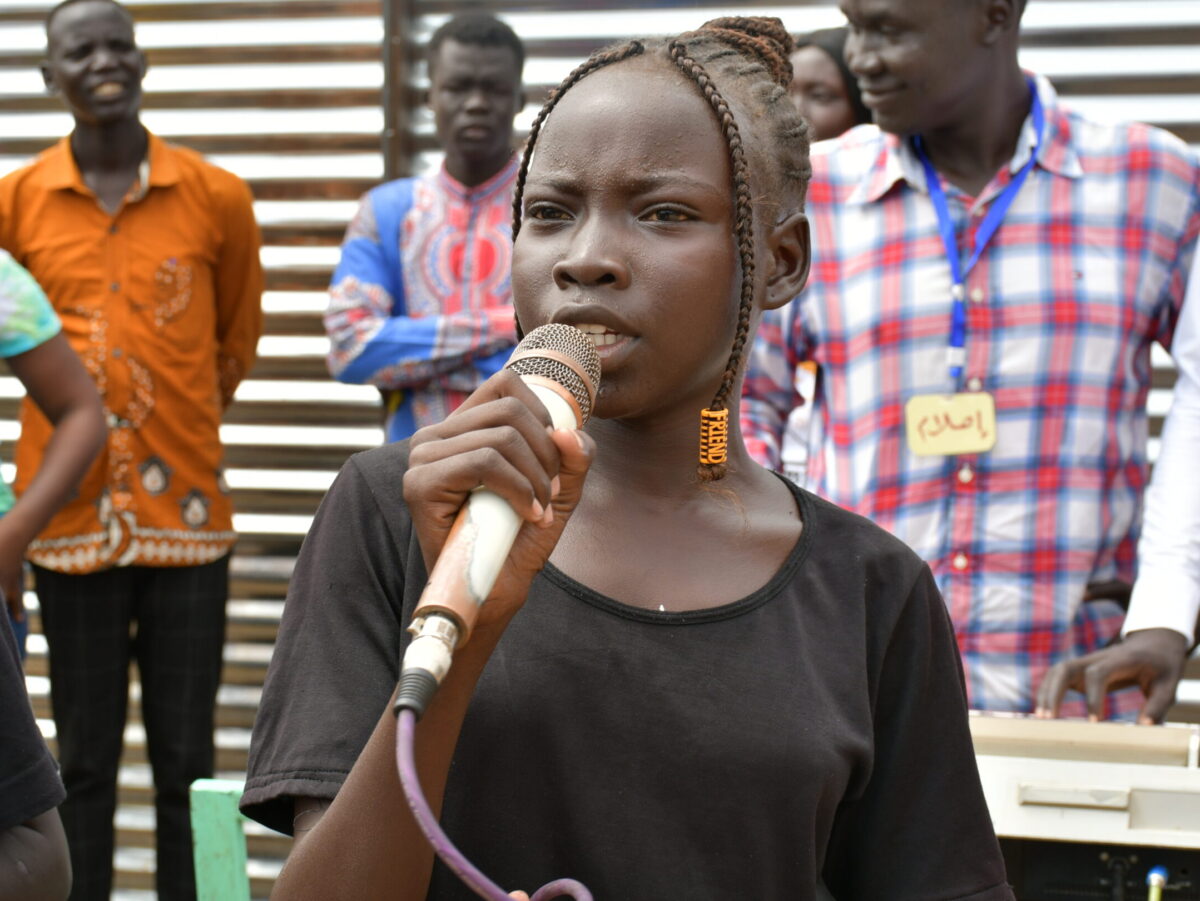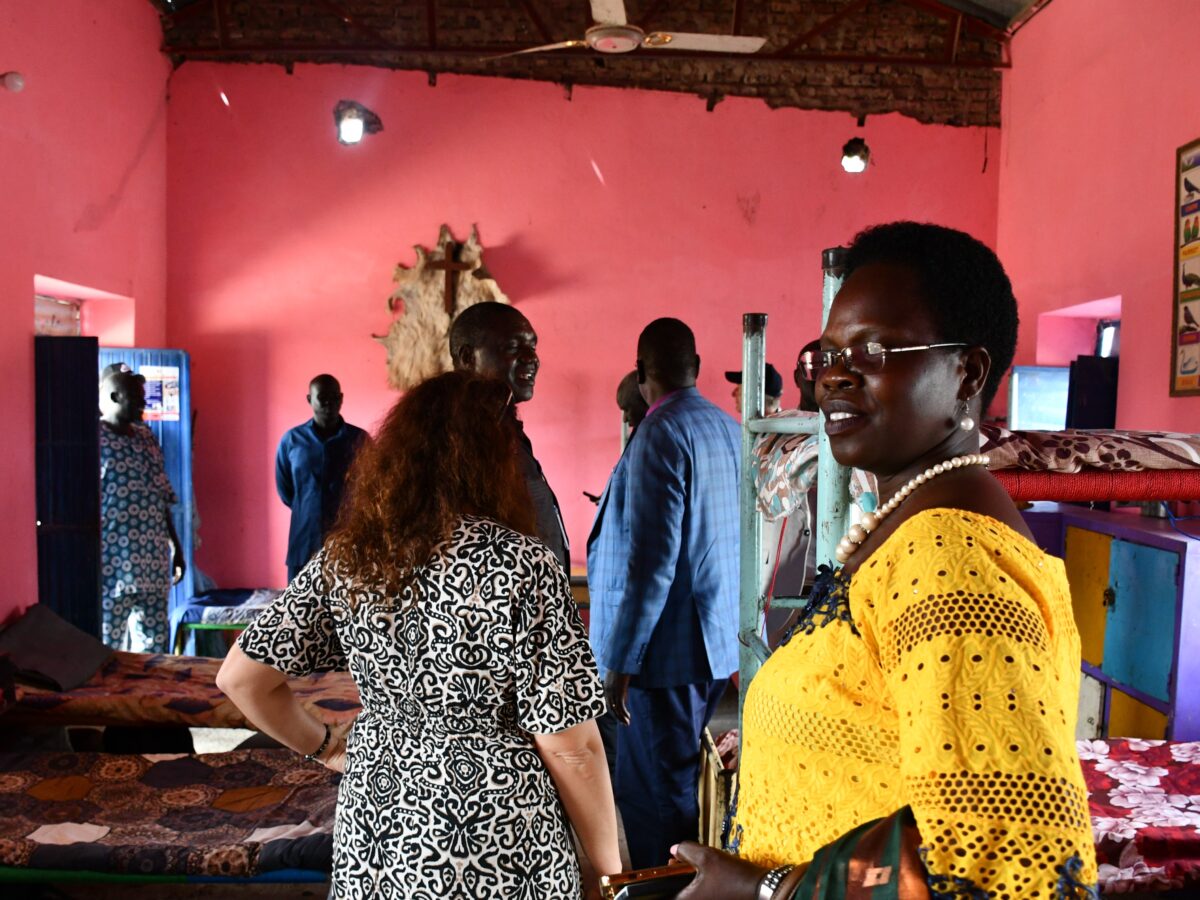South Sudan, the second poorest country in the world, is in a state of emergency. The country is in a fragile peace process and is only slowly recovering from devastating years of civil war. On February 22, 2020, after a long delay, a unity government was finally formed. Now the country faces a long and difficult process of reconciliation, while at the same time having to deal with the Corona crisis.
At the beginning of June, some media reported that leading government personnel had become infected with the coronavirus. One minister even died as a result of the disease. Political actors are working to secure power and authority, which is why the existence of the virus is downright denied in order to increase re-election chances. Official figures from the Ministry of Health as of June 8 recorded 1606 people infected and 20 people who died from Covid-19. Structures to respond to the crisis are still lacking at many levels, especially municipal ones. A government task force on the Corona situation with 15 high-ranking politicians had to resign after a short time because all tested positive for the new virus.
Lack of leadership unity and threat of famine
People's trust in the government is weak, because sufficient measures against the virus are not in place and people suffer from a lack of health facilities and a desolate economic situation. Far greater concerns than Covid-19, however, are the threat of famine for South Sudan's mostly young population. The UN's World Food Programme (WFP) fears that an additional 3 million people in South Sudan could be pushed to the brink of starvation by the end of 2020. Even before the Corona crisis, six million people in the country suffered from food insecurity and 20,000 from extreme hunger.
Even a one-month lockdown has contributed to an acute worsening of this hunger situation. Over 80% of people work in the informal sector and have less than one US dollar a day to live on. During the lockdown, these earning opportunities have plummeted. Hunger in the country is pervasive. Most people can barely afford one meal a day. Closed borders are also to blame, causing food prices to skyrocket, as much food is imported.
Solidarity actions and civil initiatives
In this difficult situation, more young people have joined together to fight against the spread of the virus. Our partner organizations, the Presbyterian Church (PCOSS), the South Sudan Federation of Churches (SSCC) and the development organization PRDA have launched awareness campaigns against the spread of the coronavirus with the help of Mission 21. They support the communities with acute survival aid measures, such as food or protective and hygiene materials.
Due to the critical situation in South Sudan, Mission 21 and its partners have made on-the-ground support an important emergency aid. The suffering South Sudanese population is now in urgent need of this vital support.
► Learn more about our project work in South Sudan
► Learn more about our solidarity action "Signs of Hope






